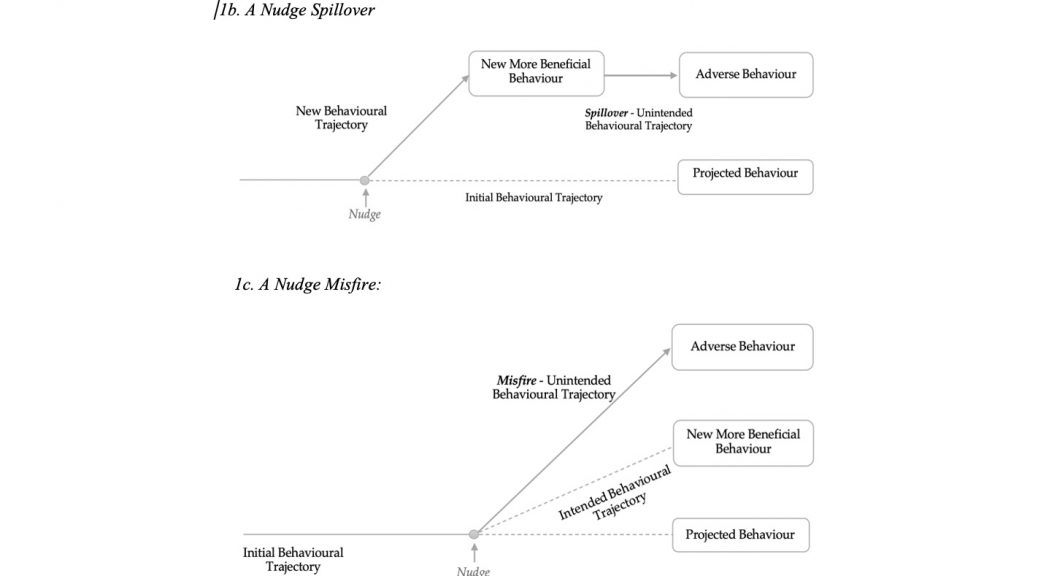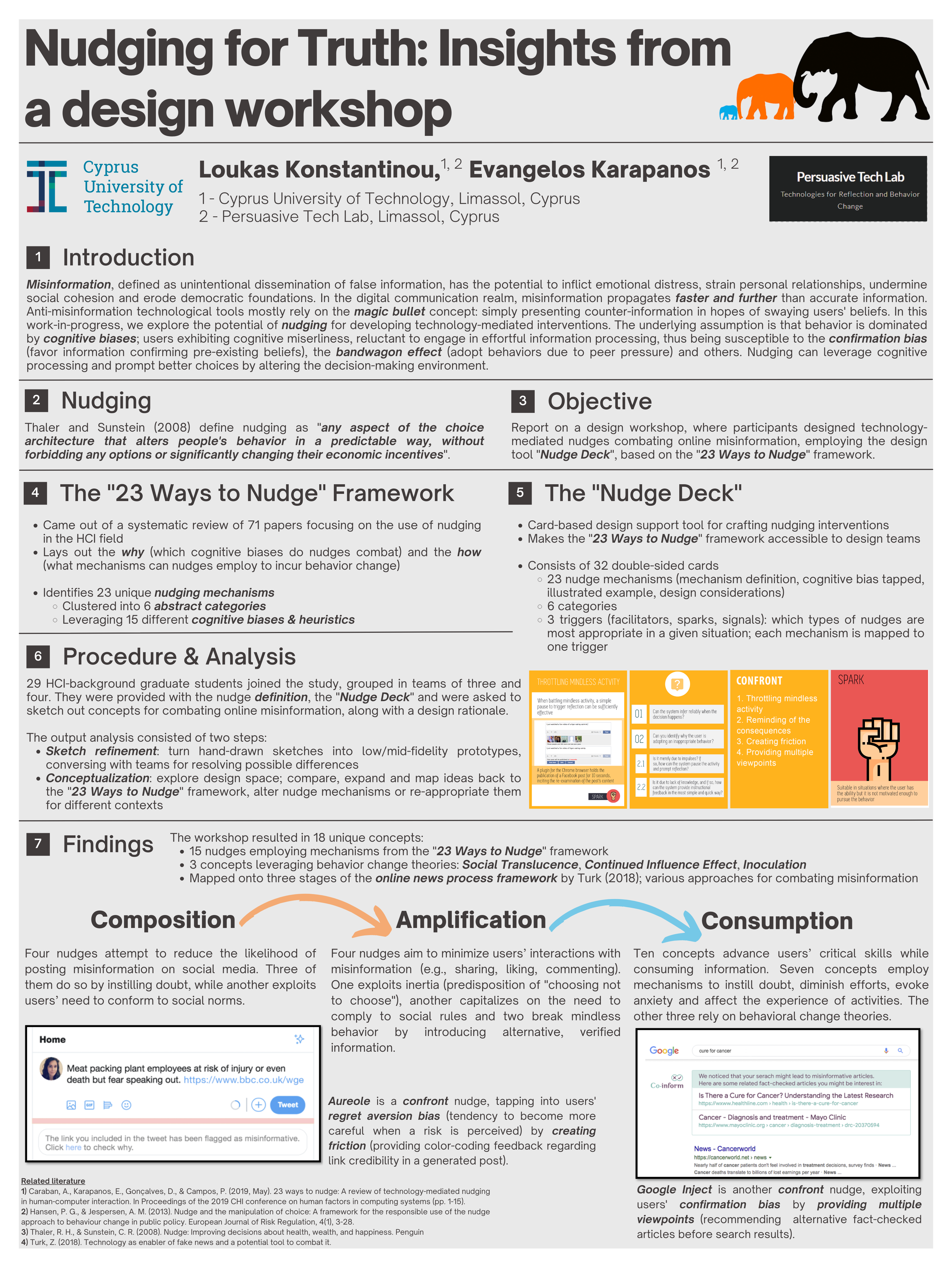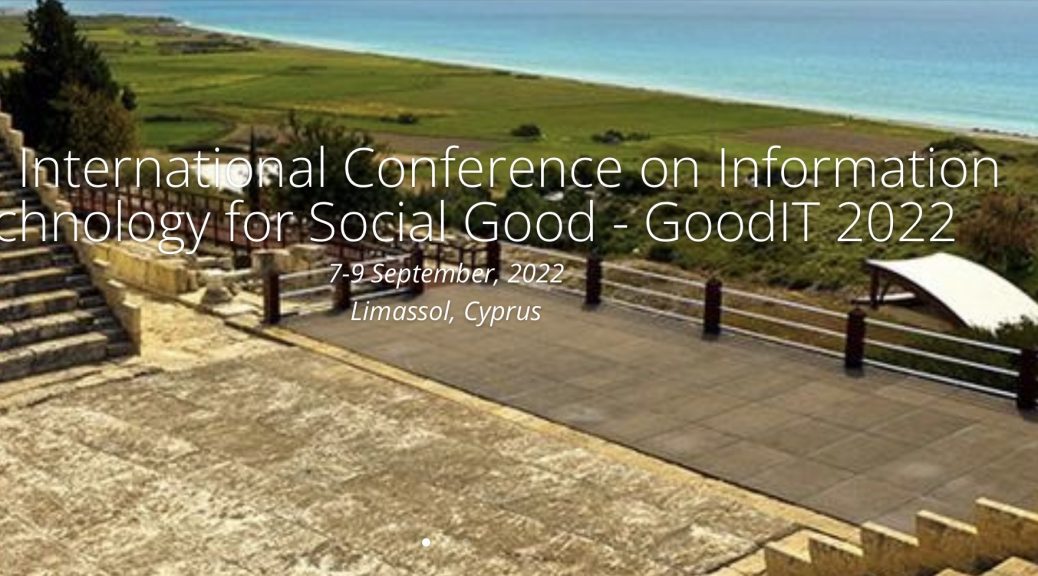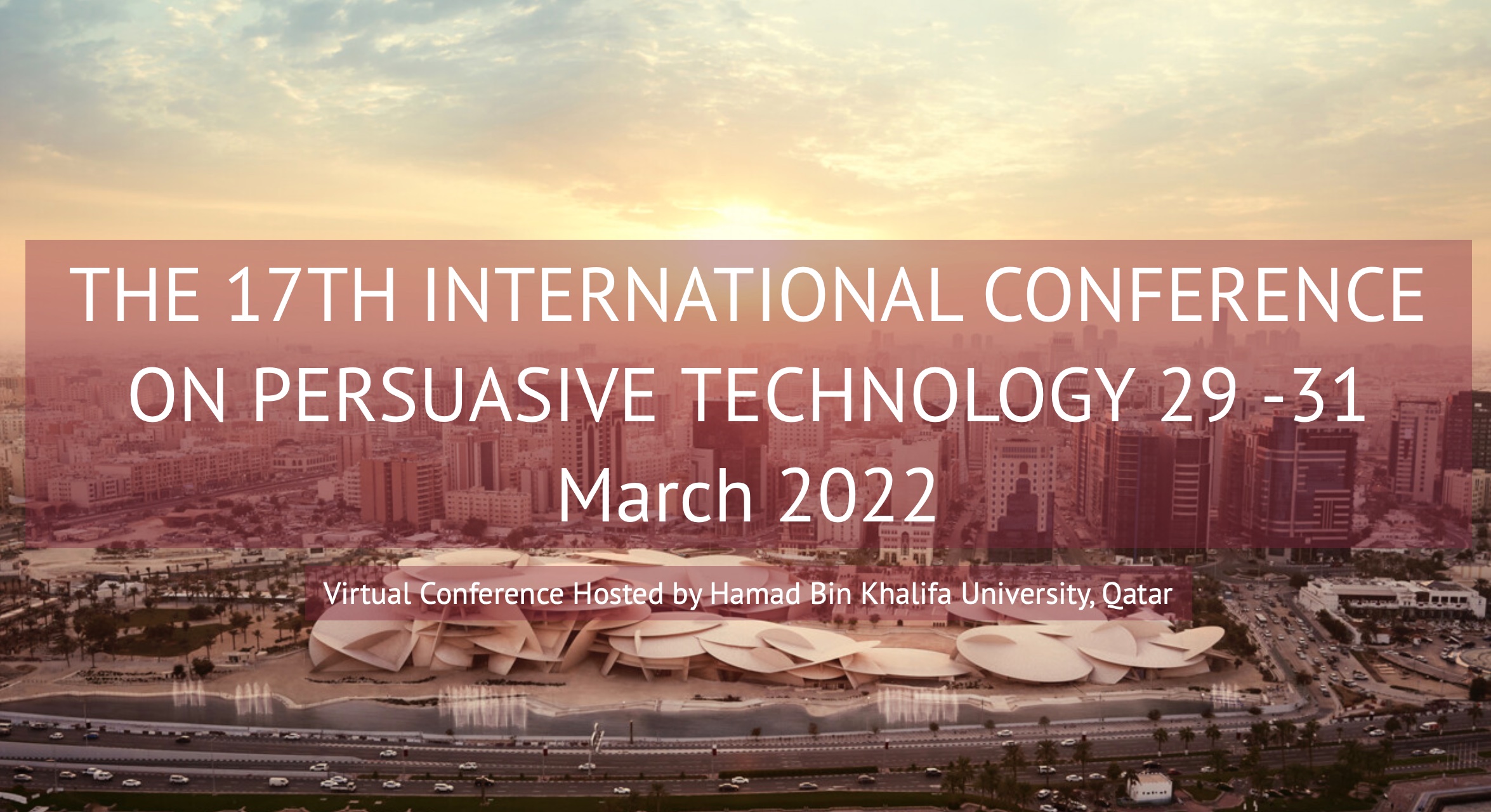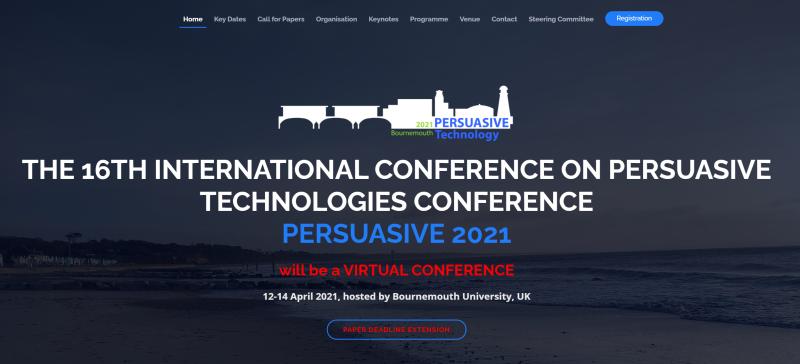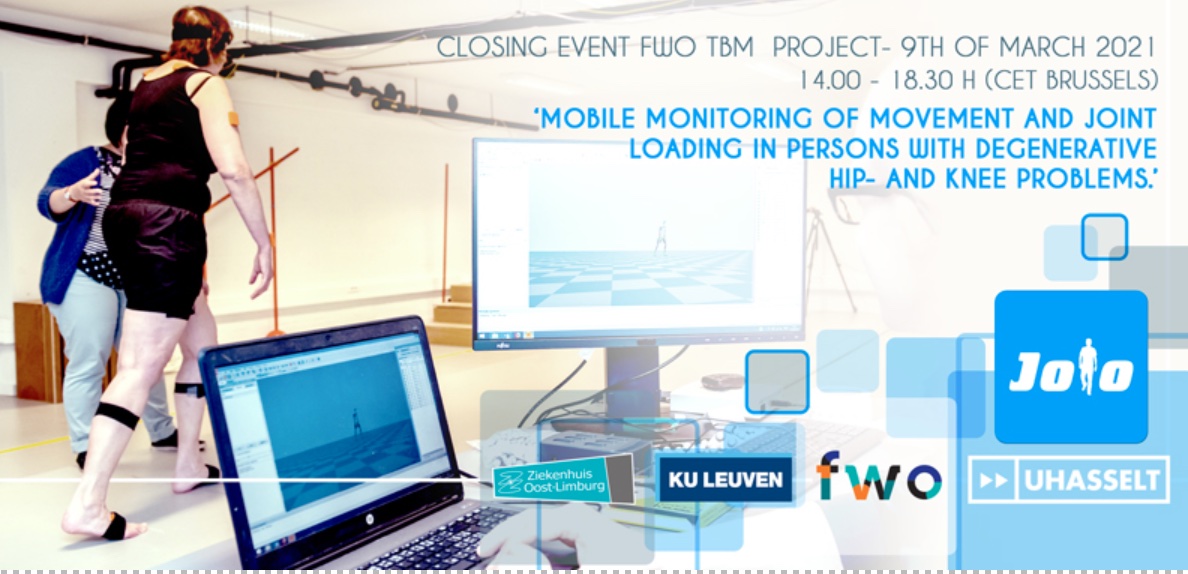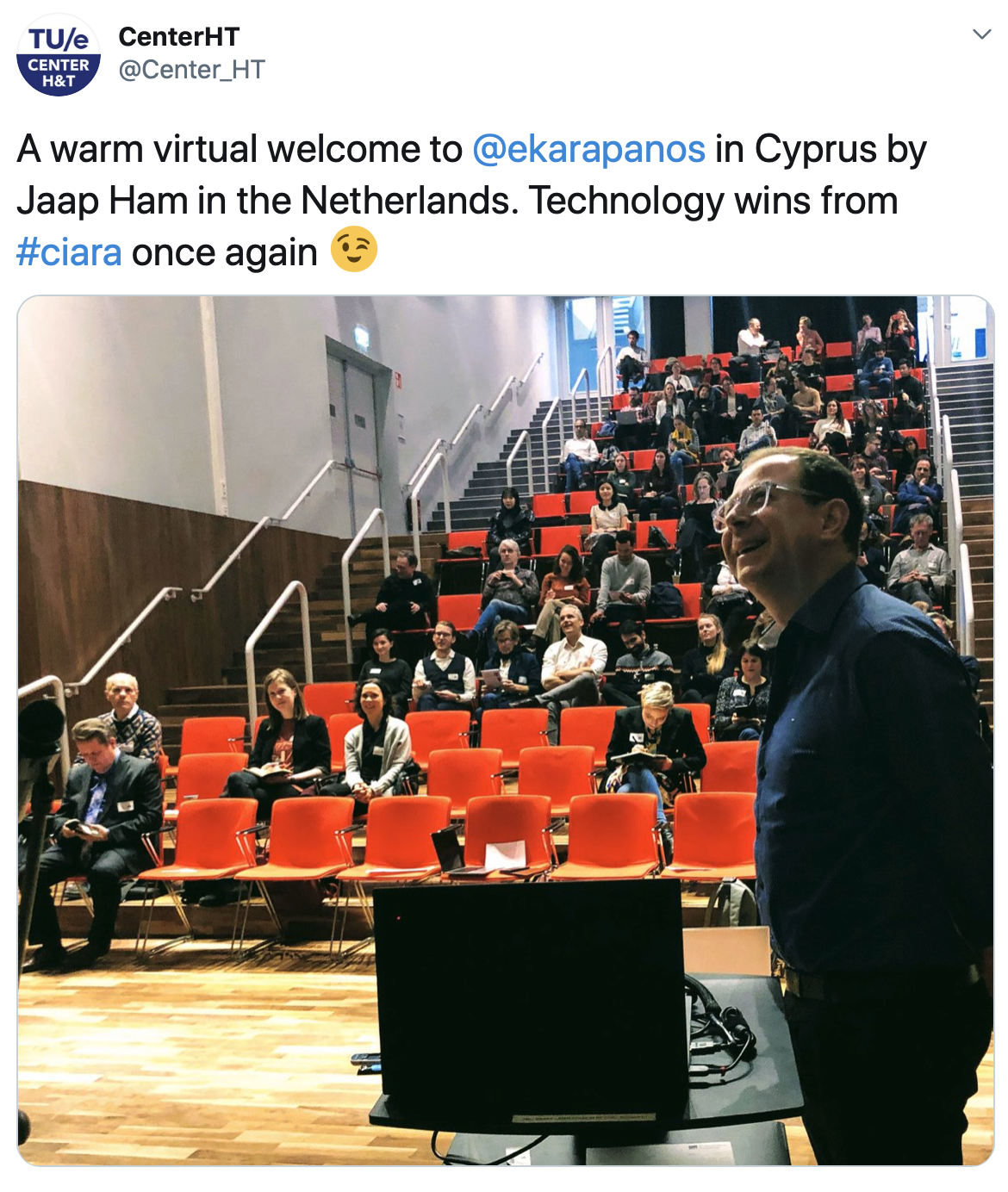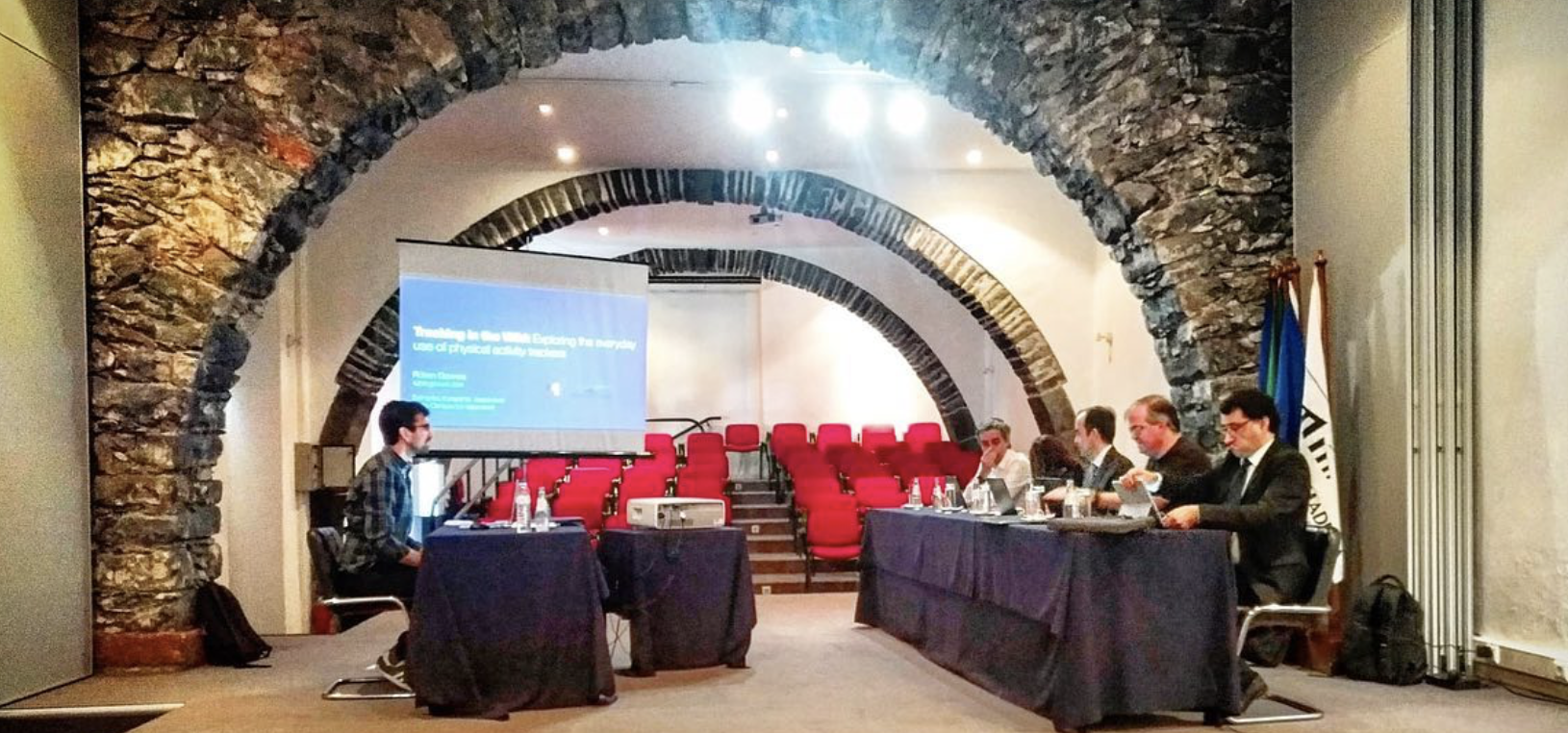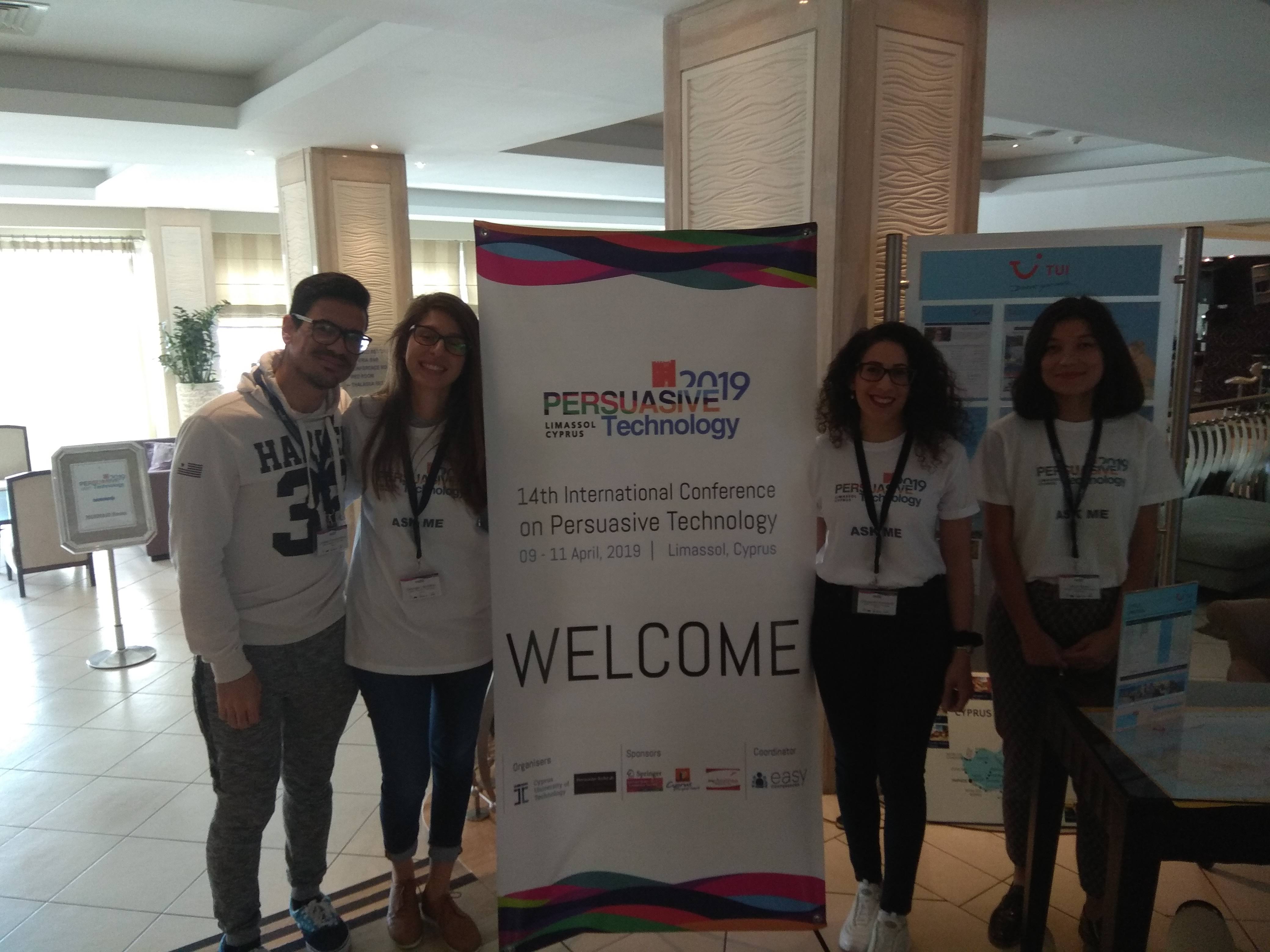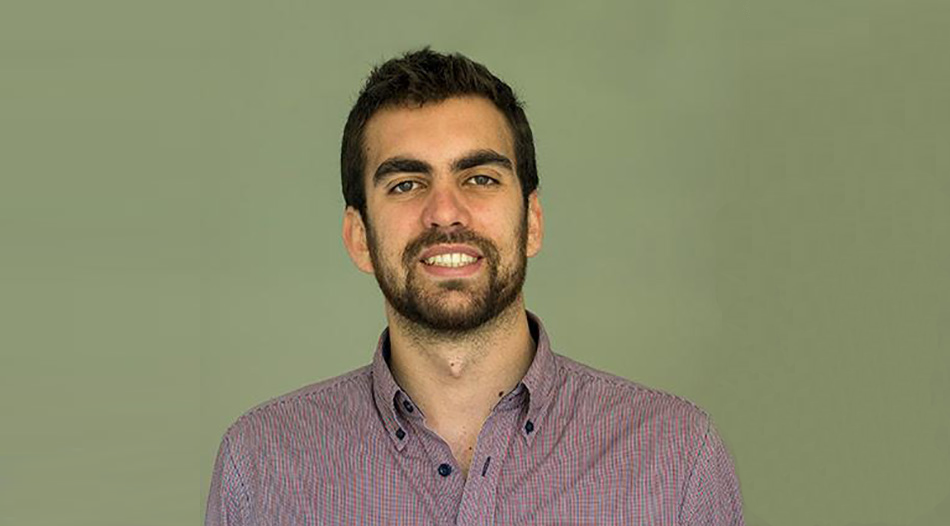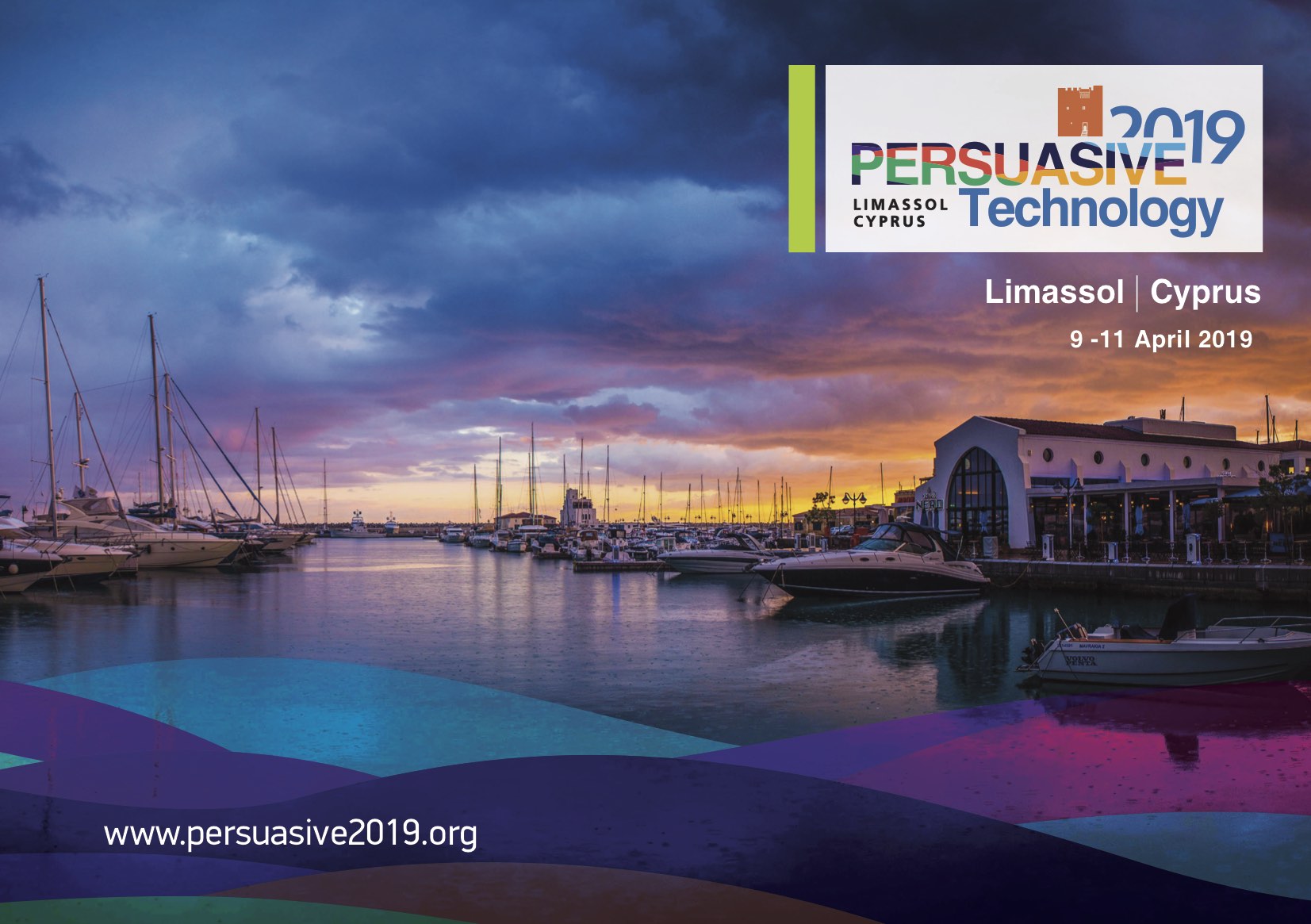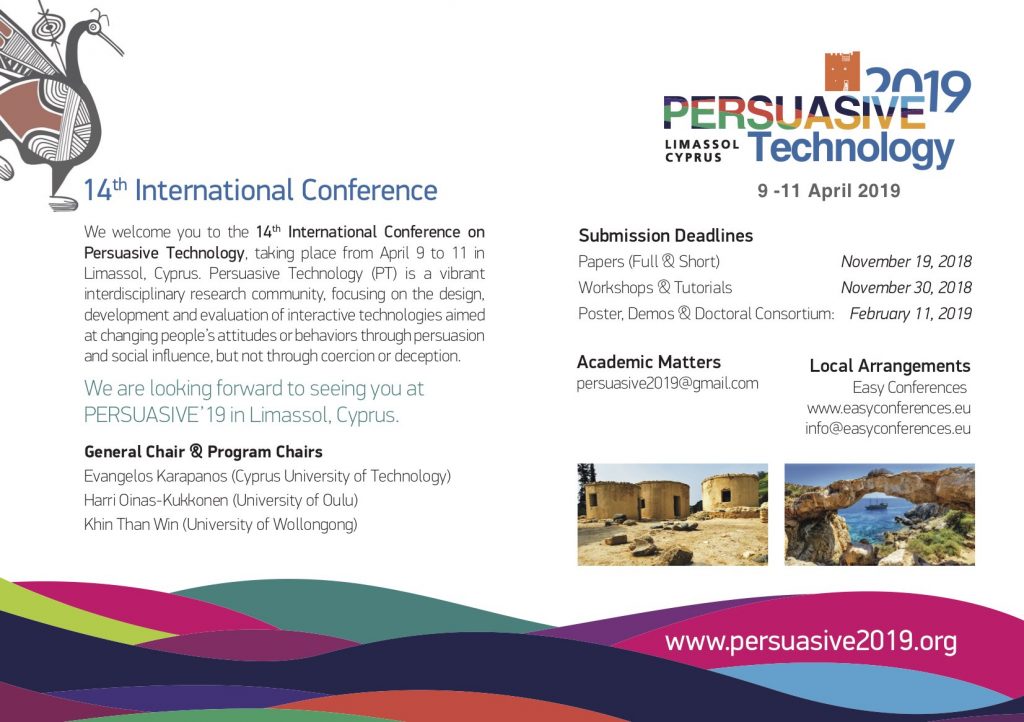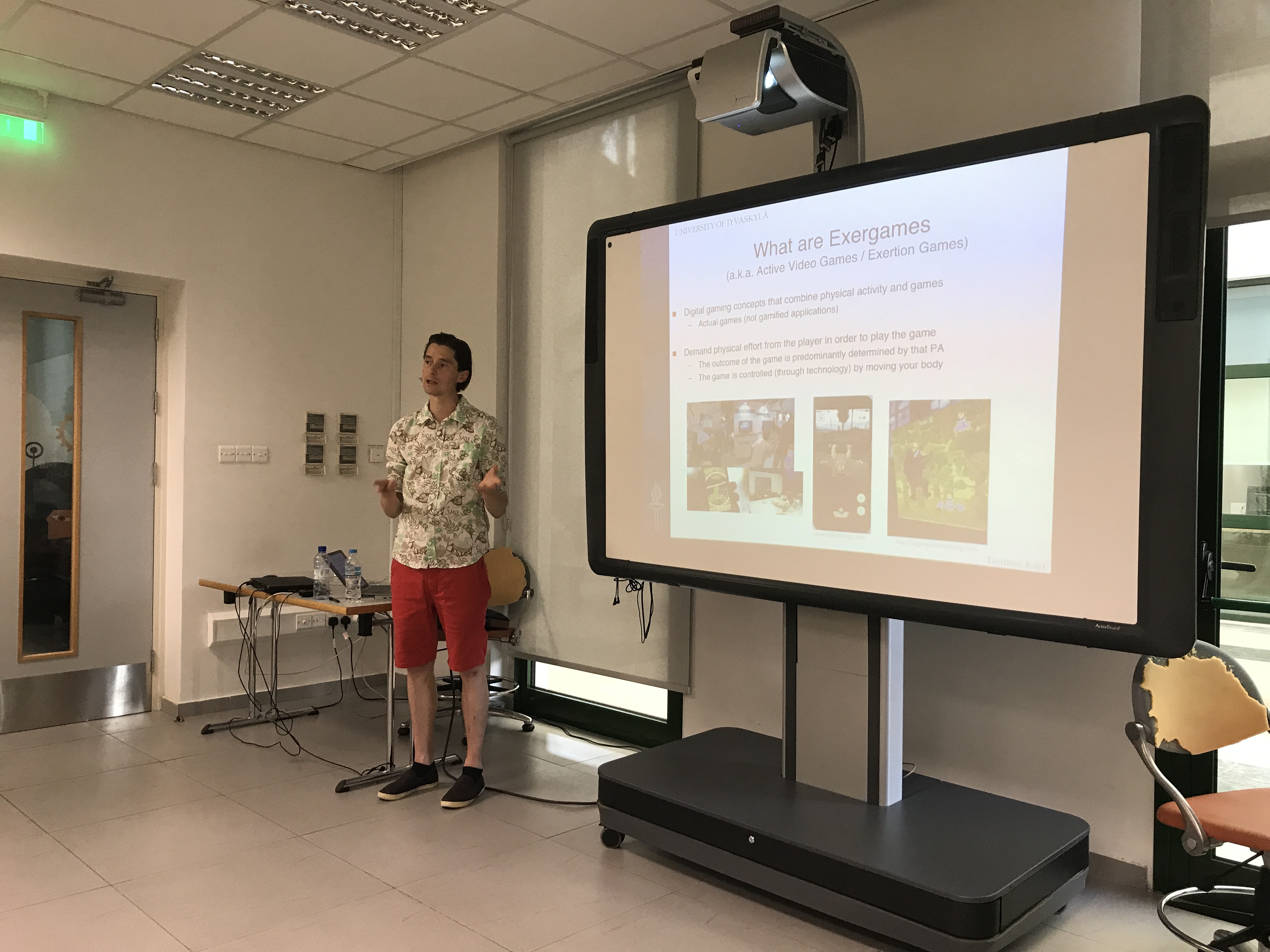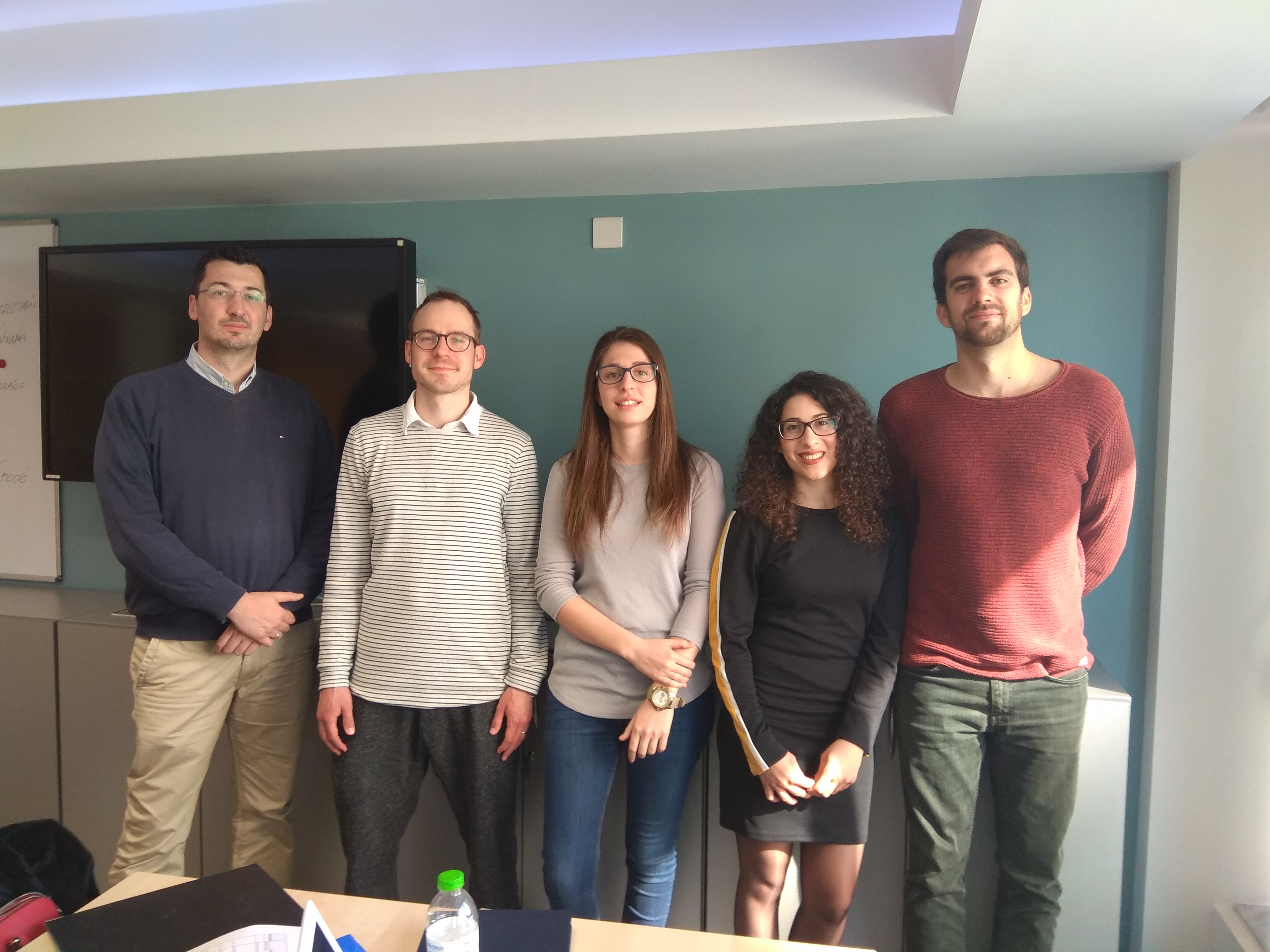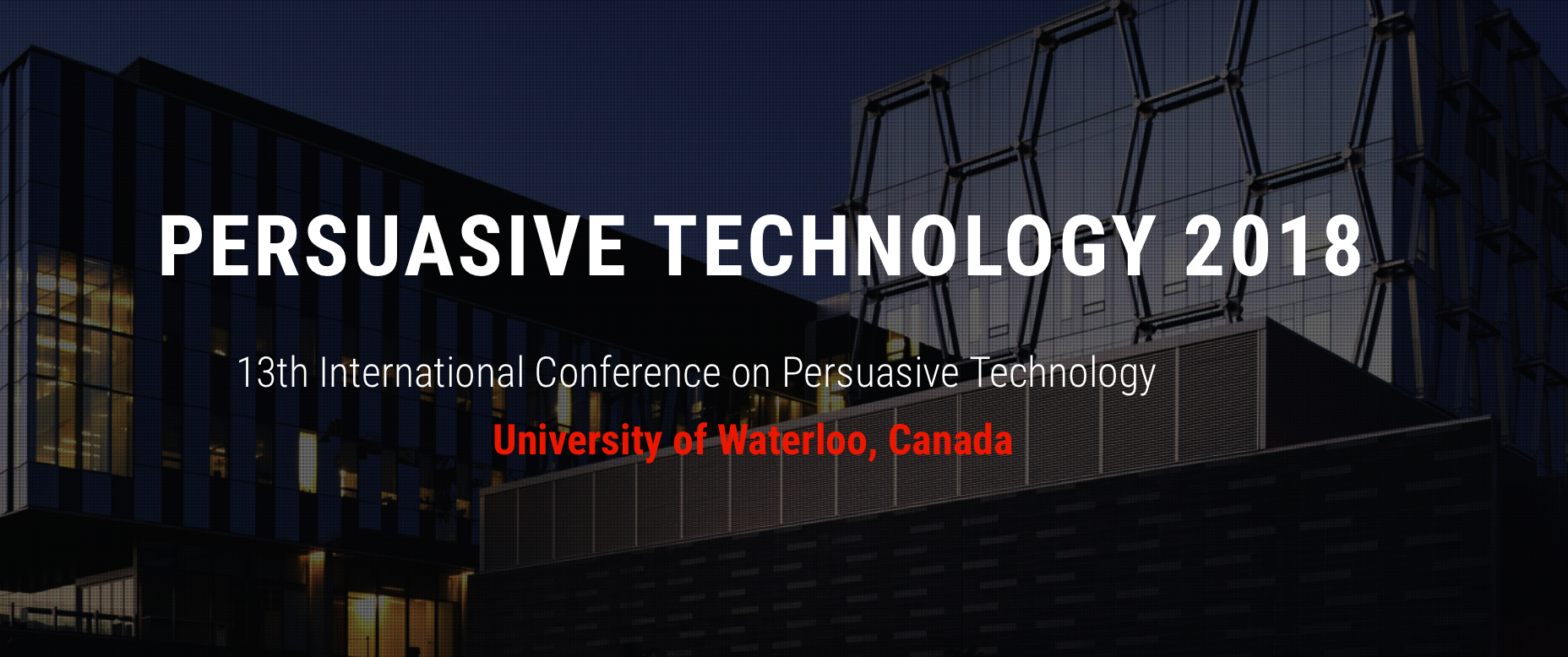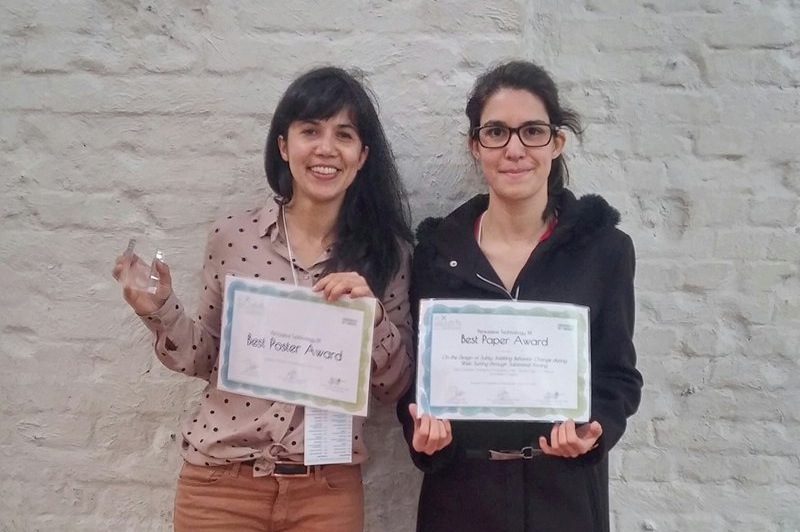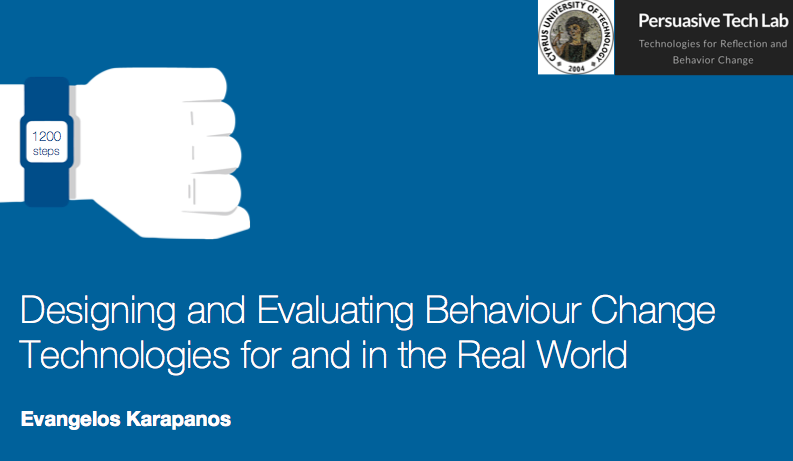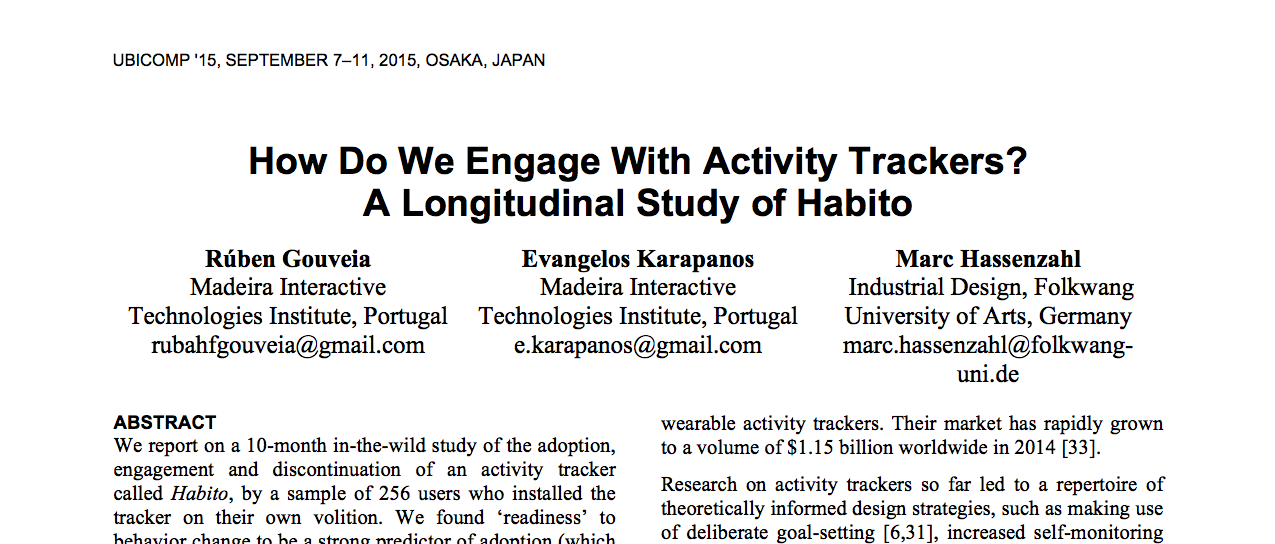We’re involved in the organisation of the Persuasive’18 conference to be held in Waterloo, Canada. Deadline for papers: November 1, 2017. Submit!
—–
Dear sir/madam,
We are pleased to announce that the International Conference on Persuasive Technology is being hosted in Waterloo, Canada in 2018! The conference will be hosted by the University of Waterloo, Centre for Bioengineering and Biotechnology.
Persuasive Technology brings together researchers interested in using psychology and technology to effect behaviour change. The conference is suitable for everyone interested in persuasive technology, persuasive design and design for behaviour change.
The submission deadline for papers, workshops, and tutorials is November 1, 2017. Please check our website www.persuasive2018.org or the Call for Papers below for more information.
We are looking forward to seeing you all at the Persuasive Technology conference and welcoming you to Waterloo and Canada!
Kind regards,
The Organizers of Persuasive Technology 2018.
~~~~~~~~~~~~~~~~~~~~~~~~~~~~~~~~~~~~~~~~~~~~~~~~~~~~~~~~~~~~~~
PERSUASIVE 2018 (PT-18)
The 13th International Conference on Persuasive Technology
April 16-19, 2018, Waterloo, Canada
Paper submission deadline: November 1, 2017
http://www.persuasive2018.org
~~~~~~~~~~~~~~~~~~~~~~~~~~~~~~~~~~~~~~~~~~~~~~~~~~~~~~~~~~~~~~
Persuasive Technology (PT) is a vibrant interdisciplinary research field, focusing on the design, development and evaluation of interactive technologies aimed at changing people’s attitudes or behaviors through persuasion and social influence, but not through coercion or deception.
The 13th international conference on Persuasive Technologies will be hosted by the University of Waterloo, Canada, a short drive from the beautiful multicultural city of Toronto. This is the first time that the Persuasive Technology conference has come to Canada. The previous successful conferences have been organized in Amsterdam, Salzburg, Chicago, Padua, Sydney, Linköping, Columbus, Copenhagen, Claremont, Oulu, Palo Alto, and Eindhoven.
The conference will bring together researchers and practitioners from industry and academia who are working in the field of persuasive technologies. As a community we aim at enriching people’s lives in various domains – e.g., health, safety, and the environment – by supporting their personal goals to change their behavior.
Scope
2018 Special Theme: Persuasive Technology – Making a Difference
This years special theme for the Persuasive Technology conference is “Making a difference”. This theme is both a celebration of what Persuasive Technology has accomplished, and a challenge for where Persuasive Technology can make a difference in the future. As a result we invite papers that show clearly the design of persuasive technologies with the explicit goal of creating behavioural change, and papers that show that persuasive technologies made a difference. Papers that explore methods to improve the understanding of persuasive interventions, and the measurement of behaviour change are also encouraged. We also encourage papers that exploring new frontiers for persuasive technology, such as personalized persuasion, uses of big data, new ways of creating engagement through gaming or social connection. Persuasive technologies in various domains (health, energy usage, social commitment and others) and creative and effective uses of persuasion through various technologies (web, wearables, AI, and smart environments) will be considered.
The main scope of the conference includes (but is not limited to) the following topics:
We welcome a wide diversity of papers. Papers eligible for acceptance may address the application of PT in different domains (e.g., health, safety, energy, etc.), examine the specific psychological mechanisms that positively or negatively influence PT effectiveness (e.g., habits, reciprocity, social comparison), the ethics of persuasive technology, focus on technology that provides input to persuasion attempts (e.g., sensors, monitoring, AI, etc.), or emphasize methodology (for design, evaluation, implementation, etc.). Whatever the focus, we especially welcome papers that focus on technology as a means to study interactions between humans and PT, are grounded in relevant and up-to-date theory, transcend a mere showcasing of applications, and address the generalizability of results.
The list below provides some additional examples (in no particular order); eligible papers are not limited to these specific examples.
Domains
· Safety
· Personalized health care (e.g. health, wellbeing, happiness)
· Personalized medicine
· Healthy environments
· Sustainable environment
· Persuasive wellbeing
· Persuasive cities
· eLearning and training
· Marketing and e-commerce
Technological and design perspective
· Big data systems
· Sensing technology
· Early warning systems
· Intelligent systems
· Smart environments
· Connected devices (Internet of Things)
· Design of feedback
· Multimodal interaction
· Persuasive systems, interfaces, visualization
· Socially influencing systems
· Computer-supported influence
· Tailored, persuasive, and personalized systems
· Mobile, pervasive and ubiquitous persuasion
Methodology
· Design methodologies
· Behavior change support systems design
· Experiments
· Big data methodologies
· Gamification
· Implementation
· Evaluation and validation
· Valorization
· Machine learning
· (Ecological) monitoring
· Feedback
· Coaching
· Persuasion through gamification
Theory
· Mass persuasion and interactive technologies
· Cognition and persuasive technology
· Ethics and moral issues
· Cultural influences
· Humanizing and/or dehumanizing effects of persuasive technology
· Unconscious processes
· Habits and habit change
· Social practices
· Cultural values
· Reciprocity
· Competition, social comparison
· HCI issues
Miscellaneous
· Unexpected effects of PT
· Disruptive technology
· Persuasive backfiring
· Peripheral interaction
· Slow technology
Contributions can be made in the following categories:
· Paper (short and long)
· Poster
· Workshop
· Symposium
· Demo
· Doctoral consortium
· Tutorial
Please check www.persuasive2018.org for further details and for deeper descriptions of the contribution types.
Chairs
General chair: Catherine Burns
Organizing chair: Plinio Morita
Program chairs: Jaap Ham and Evangelos Karapanos
Tutorial and Doctoral Symposium chair: Lisette van Gemert-Pijnen
Workshop chair: Rita Orji
Social Media Team: David Zehao Qin, Dia Rahman, Agnis Stibe
Administration: Krystina Bednarowski
